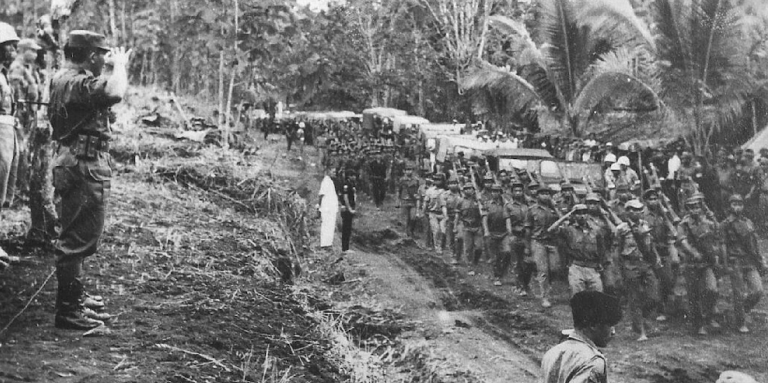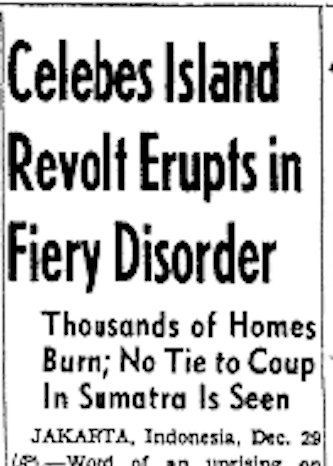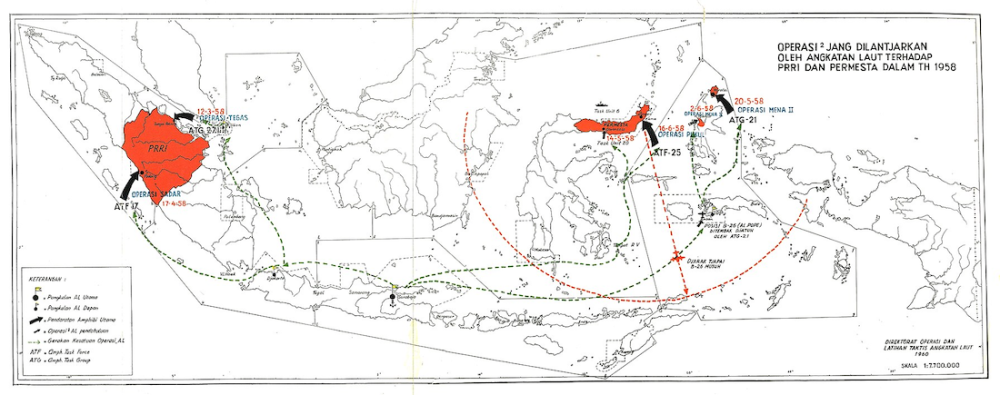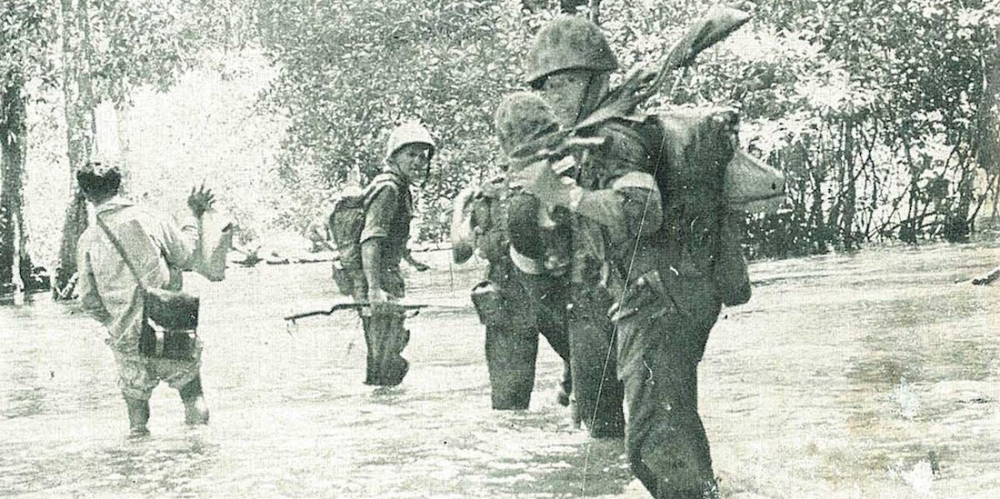
From Classroom to Combat: The Untold Story of a Scholar Who Led a CIA-Backed Revolution Known as ‘Permesta’
New York, N.Y. — Dr. Katrina Tendean was a respected professor of pedagogy at a North Sulawesi university — Universitas Sam Ratulangi — a woman known for her sharp intellect and dedication to education.

But beneath her academic veneer lay a secret past: she had once been a commander in Permesta, a fierce rebellion against the Indonesian central government that raged from 1957 to 1961.
Few knew of her role in the movement—until now. Sulawesi at the time was still known as the “Celebes Islands.”
Permesta, short for Perjuangan Semesta (Universal Struggle), was a regional uprising born from economic disparity, political marginalization, and resentment toward Java-centric governance.
Declared in 1957, the movement initially thrived in Makassar before shifting its base to Manado, where Tendean and other leaders waged a guerrilla campaign against Jakarta’s forces.
The Spark of Rebellion

The roots of Permesta lay in frustration. Eastern Indonesia, rich in resources, felt neglected by the central government.
Military leaders and civil figures like Governor Andi Pangerang demanded greater autonomy and a fairer distribution of wealth. When diplomacy failed, rebellion ignited.
Dr. Tendean, then a young but formidable intellectual, was drawn into the movement’s ideological core.
Unlike many female revolutionaries relegated to support roles, she took on strategic leadership, helping organize supply lines, training recruits, and even advising combat operations.
“No one would believe a woman was capable of being a rebel leader, so her cover was perfect,” a member of her family explained.

The CIA’s Covert Hand
By 1957, the U.S., fearing communist influence in Indonesia under Sukarno, saw Permesta as a counterweight.

The CIA began funneling weapons, aircraft, and mercenaries to the rebels.
Fifteen B-26 bombers and P-51 Mustangs bolstered Permesta’s makeshift air force, the Angkatan Udara Revolusioner (AUREV).
Yet foreign backing proved fickle. In May 1958, CIA pilot Allen Pope was shot down over Ambon, exposing U.S. involvement.
Washington withdrew support, leaving Permesta vulnerable.
Indonesian government forces seized Manado in June 1958, forcing rebels high into the mountains.
Guerrilla Warfare and Gradual Defeat
For three years, Permesta fighters held out in North Sulawesi’s rugged terrain. Rebel units—comprising former Dutch colonial soldiers (KNIL) and local youth—relied on hit-and-run tactics. But dwindling supplies, infighting, and relentless military campaigns wore them down.
By 1961, amnesty offers from Jakarta splintered the movement. Many, including Tendean, laid down arms. She returned to academia, her wartime role fading into obscurity.

A Legacy Rediscovered

Decades later, her family learned the truth.
It was hard for me to reconcile this retired professor — my then-mother-in-law — with the extraordinary revolutionary. But her strength, her defiance—it explained so much about her son. She passed away in 1995.
Tendean’s story mirrors Permesta’s complexities: a fight for regional justice, entangled in Cold War politics, ultimately absorbed into Indonesia’s tumultuous march toward unity.
Summary for Audio (75 words)
Dr. Katrina Tendean, a university professor, secretly commanded guerrillas in Indonesia’s 1957–1961 Permesta rebellion. Fighting for regional autonomy, Permesta gained CIA support before collapsing. Tendean’s dual life as scholar and revolutionary reveals the untold struggles of Eastern Indonesia against centralized rule. Her story, long hidden, illuminates the personal costs of rebellion and the shadows of Cold War interference in Southeast Asia.
Guerrilla Professor: Dr. Katrina Tendean’s Secret Role in Indonesia’s Rebellion (July 8, 2025)